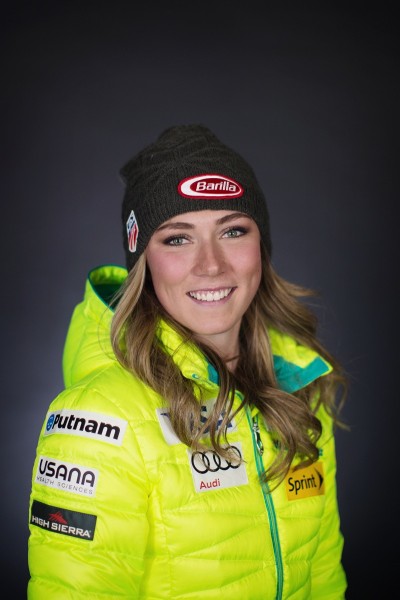
Mikaela Shiffrin won her third straight World Cup title. Photo courtesy of USSA.
They say diamonds are a girl’s best friend.
For Mikaela Shiffrin, it’s got to be crystal.
Not even legally old enough to drink in the country she calls home, Shiffrin became the first woman to win three World Cup crystal globes before turning 21.
She celebrated her birthday, number 20, March 13.
Her third consecutive slalom globe came March 21 during a come-from-behind victory on the Roc de Fer course in the French Alps town of Meribel.
It was the Olympian’s sixth World Cup win of the season, and 15th of her young career.
“I don’t really feel like it’s my globe,” she said. “I’m the one who goes home with it and keeps it in my room. But there are a lot of people who worked towards that. The consistency through the season —that’s what the globe means. It means I was able to figure out a way to be consistently at the top of slalom for most of the season. And I’m proud of that. But when it gets to be about that—winning every race or being close to the top—it’s never about the athlete, it’s about the team. One person can’t have that much success. I don’t feel it’s mine to own, it’s just mine to have right now.”
Shiffrin entered the starting gate with a 90-point lead in the slalom standings. That meant all she needed was to finish in the top 15 and the trophy was hers.
There’s no doubt Shiffrin was feeling the pressure and not just from herself. After the first run she was .07 back from the strong skiing Swede Frida Hansdotter, challenging Shiffrin all season.
“I’m happy to have the globe and have won the last race of the season,” said Shiffrin. “It’s a special day. It was a tough race today, I have to say—a little bit more stressful. Frida put a lot of pressure on me but I expected that. She’s a tough fighter and I’ve learned a lot from her—she’s so fast. I had to pull out a lot out of myself in the second run. You saw at the top, she was just crushing. I’m going to watch her video all summer to see how she skis so fast.”
Hansdotter was first out of the gate during the first run and skied a precise and magical run which Shiffrin was unable to mirror.
But Shiffrin tapped her champion reserve and skied a clean race to post the time to beat.
Hansdotter was last on the course and skied crisply in the upper portion of the run, but was unable to put the hammer down on the bottom to the finish.
“Another really great season and a season in which I learned a lot,” said Shiffrin. “Hopefully I can go back and look at everything I accomplished and everything I lost at the beginning of the season when it wasn’t going so well, and remember the process of getting back on top because I’m sure that will do me well for the next years.”
Shiffrin was also named a Longines Rising Ski Star, an award rewarding the best female skier under 21 (and male skier under 23) on the alpine World Cup circuit.
“I hope I’m always considered a rising star,” she said. “This is a really special time for me to be always climbing and progressing and getting better. Hopefully I’ll always keep that tactic. I don’t necessarily want to be considered the star—I like the rising star.”
Shiffin wasn’t the only American female skier adding to her crystal collection. On March 19, Lindsey Vonn capped her sweet comeback season with her 67th World Cup victory and 19th crystal globe, the most of any woman in history.
That number matches the number set by Sweden’s Ingemar Stenmark.
At Meribel, Vonn swept the speed events—first the downhill and then the super G.
“I’m definitely more proud of myself than I expected to be this season,” said Vonn. “Things got off to a much quicker start than I thought winning in Lake Louise. I’ve had my ups and downs and some inconsistent results. But I’m extremely happy with my performance this season. Being away from the World Cup for almost two season is a long time. I think I solidified to myself and everyone else that I’m back.”
Vonn’s had knee surgeries. She had a 2013 crash at the World Championships in Austria and then re-injured it forcing her to miss the 2014 Olympics.
 Your Privacy Choices
Your Privacy Choices
 The
The